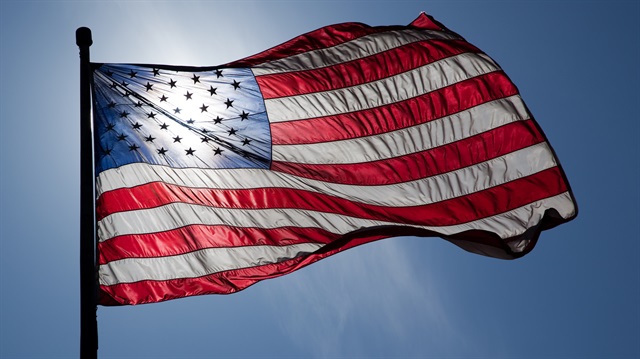
Revisiting ties with Islamabad, downplaying areas of friction with India not US’s choice but compulsion, analysts say
The U.S. is treading a rocky path in South Asia, despite striking a conciliatory tone in recent visits by top American officials to India and Pakistan.
The U.S. Secretary of State, Michael Pompeo, who visited Pakistan earlier this week to “reset” the otherwise strained bilateral relations, tried to woo Islamabad to use its so-called influence to bring Afghan Taliban to the negotiating table in war-struck Afghanistan.
In the second leg, Pompeo together with Defense Secretary Jim Mattis signed a much-delayed military communications agreement with India -- another sign of Washington’s longtime desire to contain China’s ambitions in Asia.
The agreement will allow New Delhi to receive military-grade communications equipment from Washington and permit the exchange of real-time encrypted information on platforms used by the two armed forces.
The two top officials of Donald Trump’s administration downplayed areas of tension with India -- buying oil from Iran and a missile defense system from Russia -- ignoring repeated sanction warnings from the U.S.
For many, revisiting of ties with Islamabad and downplaying areas of friction with India is not Washington’s choice but a “compulsion.”
Speaking to Anadolu Agency, Jere Van Dyk, a New York-based journalist and author of best seller "In Afghanistan: An American Odyssey" said: “The U.S. is concerned that Pakistan is becoming almost a satellite or a colony of China and the U.S., by drawing closer to India, is showing its displeasure.
Dyk said the U.S. is also trying to extract itself from Afghanistan and needs Pakistan's help and wants to put pressure on it indirectly.
“The U.S. feels closer in many ways to Pakistan, because of their shared role in containing Communist Soviet Union during the Cold War[…],” he added.
According to Dyk, Washington will not be happy that India has purchased oil from Iran but is aware that China, Pakistan and India need oil and natural gas to fuel their growing economies which Russia and Iran have in abundance.
Abdul Khalique Ali, a Karachi-based political and security analyst, believes the U.S. is compelled to retreat from its previous stand on several issues relating to India and Pakistan.
“The U.S is facing a multi-faceted imbroglio in Asia, which has compelled it to retreat from its previous stand on several issues,” Ali told Anadolu Agency.
He was referring to Washington’s opposition to India’s oil imports from Iran and acquisition of S-400 missile defense system from Russia, and multi-billion dollars China-Pakistan Economic Corridor (CPEC) project.
“India is Trump’s one of the targets of recent trade tariffs, whereas, New Delhi has completely ignored the U.S. warnings against oil imports (from Iran) and growing defense cooperation with Russia,” he noted.
“But despite all this, Washington desperately needs New Delhi to check rising China. That’s why it has to bear with India,” he observed.
Similarly, Ali opined, the U.S had long been opposing the CPEC, and growing defense and economic cooperation between Pakistan and China. “But, since it (U.S) is running short of options in Afghanistan, it needs to reset ties with Pakistan,” he maintained.
Brigadier Retired Mehmood Shah, an Islamabad-based security analyst, however, sees “lack of sincerity and substance” in Trump’s policies vis-à-vis Pakistan and Afghanistan.
“Pakistan, in particular, cannot trust Trump because he is the most unbelievable person. He is using threatening language to bring every country at its knee but this behavior is pushing the U.S itself into trouble,” Shah said while speaking to Anadolu Agency.
Pakistan, he opined, should take advantage of Trump’s hostile policies towards his allies.
“Pakistan is currently not alone. He (Trump) has created issues with Turkey, Russia, China, Iran, Canada and many other countries simultaneously,” he noted. “Now this is the time for Pakistan to tell him we cannot do more.”
Shah observed that the U.S was facing isolation in the region, where all regional powers except India were against it.
He was referring to Washington’s hawkish approach towards Russia, China, Turkey, and Iran.
“Pakistan has recently signed several defense agreements with Russia and already have good relations with China. Therefore, in terms of its defense needs, Pakistan does not need America.”
“But, I think, the increasing isolation in the region would push U.S. into more trouble in Afghanistan,” he maintained.
Deepankar Banerji, a retired general and New Delhi-based security analyst, believes that the U.S has to “adjust” with India over the former’s relations with Iran and Russia.
“Washington is certainly not happy with New Delhi’s growing relations with Iran and Russia, which are currently facing U.S. sanctions. But the question is what’s the alternative if America prevents India from signing agreements with Tehran and Moscow,” Banerji told Voice of America in an interview.
“I do not think India will bow to this demand. I feel that the U.S has to adjust with India’s ties with Iran and Russia, which are longtime and historic”, he opined.
Prof. Harrshvardhan Pant from Kings College London thinks that Trump administration has given a “strong message” to Islamabad by cutting its military aid that there will be no change in its policy despite the change of government in Pakistan.
“This continuity can benefit India as Trump administration is not ready to give benefit of doubt to new Pakistani government”, Pant said.












